detail profile louis daquin
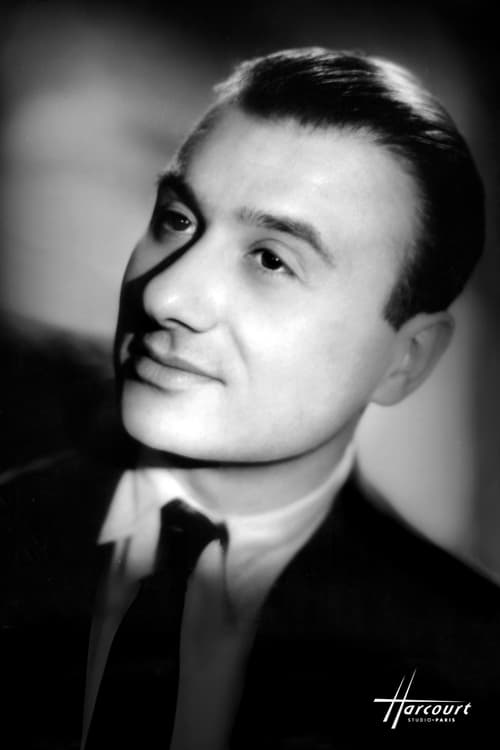
Louis Daquin
Луи Дакен
atau dikenal sebagai
Riwayat Hidup
Louis Daquin is a French director and screenwriter, born May 30, 19081 in Calais and died October 2, 1980 in Paris, in a family of small traders.
Law graduate and graduate of HEC, after having been a journalist, advertising editor at the Renault factories, and having tried his hand at theatrical writing, Louis Daquin, Louis Léon Auguste Daquin of his full name, became assistant director in 1932, he worked notably with Fedor Ozep, Pierre Chenal, Julien Duvivier, Abel Gance and especially Jean Grémillon.
He produced his first film in 1938 with the French version of Gerhard Lamprecht's film Le Joueur.
He made several feature films during the Occupation, while he was engaged in the Resistance with the French Communist Party, on whose behalf he shot a short film after the Liberation.
He also wrote in 1941 a detective novel, The Enigma of Pelham, under the pseudonym of Lewis MacDakin.
He held several positions during his career: secretary general of the Committee for the Liberation of Cinema in 1944, co-founder of the General Cooperative of French Cinema, secretary general of the CGT Film Production Technicians Syndicate from 1945 to 1962, and president of the Société des Réalisateurs de Films (SRF) from 1977 to 1978.
The General Confederation of Labor (CGT) commissioned a documentary from him on the great miners' strike of 1948, in full strike, with commentary by Roger Vailland.
Louis Daquin also offers his first major film role to Michel Piccoli, in "Le Point Du Jour", a chronicle again devoted to the life of miners in the North.
Despite some noticed films, he encountered difficulties from the 1950s to finance his projects.
His political commitments are indeed worth to him to be progressively marginalized.
An adaptation of "Bel-Ami" was thus cut to pieces by censorship in the second half of the 1950s.
He left to shoot in Romania "Les Chardons Du Baragan" in 1957, based on the novel by Panaït Istrati, East Berlin, an adaptation of "La Rabouilleuse", by Balzac.
In 1962, he was content to be production manager on "Paris Brûle-T-Il?" by Rene Clement.
He made his last film in 1963, "La Foire Aux Dunces".
He began another career, in 1970, as director of studies at the Institut des Hautes Études Cographiques, until his retirement in 1977.
Louis Daquin was married to actress Clara Gansard with whom he had two children, Jean-Michel and Marc Daquin.
He was the natural father of the militant Trotskyist Michel Recanati.
He disappeared on October 2, 1980 in Paris.
The municipal cinema of Blanc-Mesnil (Seine-Saint-Denis) will bear his name.
The municipal theater of La Ricamarie (Loire) is called Salle Louis-Daquin.
In Oissel (Seine-Maritime), a street bears the name of Louis-Daquin.
Info Pribadi
Peran Yang Di Mainkan Louis Daquin
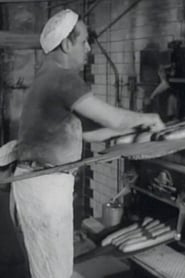 This short documents the important role...
This short documents the important role...Paris mange son pain 1958
This short documents the important role played by bread in the daily life of the city of Paris.
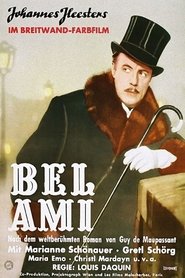 In the 1880s Georges Duroy back...
In the 1880s Georges Duroy back...Bel Ami 1955
In the 1880s, Georges Duroy, back from the Colonies, arrives in Paris with the firm intention of conquering the capital through his power of seduction, his selfishness and cynicism. Entering into journalism through the back door he will soon rise to the top with the support of several women: Madeleine Forestier, the wife of his journalist friend Charles; Clothilde de Marelle, his first mistress; Virginie Walter, the wife of a newspaper owner; Suzanne Walter, her daughter who eventually marries Duroy.
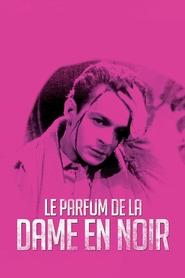 Mathilde Stangerson just married her fiance...
Mathilde Stangerson just married her fiance...The Perfume of the Lady in Black 1949
Mathilde Stangerson just married her fiance, when she heard that Larsan, her cruel former husband, whom she believed to be dead, is actually very much alive. Taking refuge to her castle, she appealed to the journalist Rouletabille to protect her.
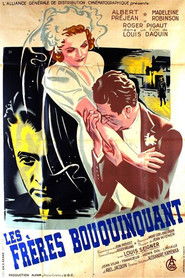 A provincial Julie Moret is hired...
A provincial Julie Moret is hired...The Bouquinquant Brothers 1948
A provincial, Julie Moret, is hired as a servant in a Parisian bourgeois residence. She is courted by one of the Bouquinquant brothers, Léon, who does not take long to ask her to marry him. Alas, Léon turns out to be violent, alcoholic and lazy. Faced with her misfortune, Julie gets closer to her brother-in-law Pierre, the opposite of Léon, serious and hardworking, and they become lovers. The drama will rush when Julie becomes pregnant with Pierre.
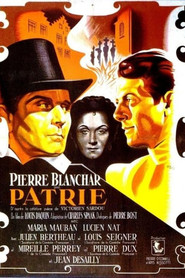 Brussels in the year 1568 as the...
Brussels in the year 1568 as the...Homeland 1946
Brussels in the year 1568, as the Flemish people are fighting against the tyranny of the Spanish occupiers. Led by Count de Rysoor, the revolt against the ruthless Duke of Alba, is meant to help Prince William of Orange to get into the city and come to power. Now, the count's lieutenant, has an affair with Elisabeth, Rysoor's wife. For the time being, the count, who thinks of his homeland first, turns a blind eye. But such a relationship might well undermine the whole rebellion movement.
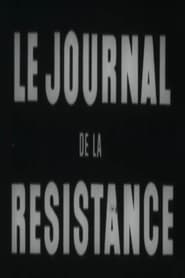 Shot primarily by twelve French cameramen...
Shot primarily by twelve French cameramen...Le Journal de la Résistance 1945
Shot primarily by twelve French cameramen (led by filmmakers Jean Painlevé and Jean Grémillon), in August 1944, this film captures the final French insurrection in German-occupied Paris, the surrender of the Germans, and the mass celebration in the streets. (There is an English-language version narrated by Noel Coward.)
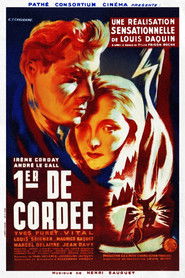 A screen adaptation of the wellknown...
A screen adaptation of the wellknown...First in Line 1944
A screen adaptation of the well-known novel by Roger Frison-Roche about the harsh lives of mountain guides and their families in the French Alps, near Chamonix and the French/Swiss/Italian borders... Like his father, Zian Servettaz is a dedicated mountain man. His Italian-born wife Bianca does not adjust well to his mountain village in France, and to the ever life-threatening dangers presented by his mountain guiding and climbing. She briefly returns to Italy and to her family. However, after Zian's insistence and trip to Italy, she returns to mountain life in the French Alps. Once back there, events will unfold, changing their lives as well as those of other mountain people forever.
 A young man comes back to...
A young man comes back to...Le Voyageur de la Toussaint 1943
A young man comes back to his hometown to be confronted with a bourgeois obnoxious family who has always despised his -now dead - parents because they were music hall artists, "entertainers". But because he's the sole legatee of an uncle's fortune, his relatives become friendly with him.. at least for a while.
 A married tugboat captain falls for...
A married tugboat captain falls for...Stormy Waters 1941
A married tugboat captain falls for a woman he rescues from a sinking ship.
 The young Suzy is a nightclub...
The young Suzy is a nightclub...Nightclub Hostess 1939
The young Suzy is a nightclub hostess in a cabaret in which Frehel is the star. Because one night she gets propositions from a rich widower who would like to have her as his girlfriend, Suzy wishes to leave this place, where she has no future, for a better one. Abandoned by her protector, a young hoodlum named Robert, she gets the occasion to get away from it. She decides to go on vacation on the Riviera and stay at the Chateau des Cedres, the former residence of a noble family that has been transformed into a bourgeois guest house by the baroness Saint-Leu. Shy and elegant, in her modest suit, Suzy stays there under the name of Suzanne Michelet and soon makes new friends among the young people of very wealthy families.
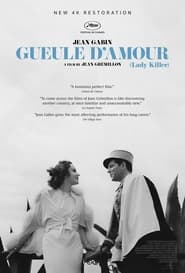 Lucien Bourrache a good looking noncommissioned...
Lucien Bourrache a good looking noncommissioned...Lady Killer 1937
Lucien Bourrache, a good looking non-commissioned officer at the Spahis, is used to charm many women. He met Madeleine Courtois at Cannes. She is beautiful and lives in luxury. He lends her a large amount of money, which she loses gambling. Then she drops him. But Lucien is now in love, and once demobilized, he goes to Paris to find her again. But he's not so sexy without his uniform, and Madeleine and him do not belong to the same milieu.

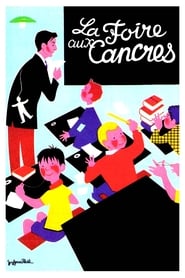 On prizegiving day a few dunces...
On prizegiving day a few dunces...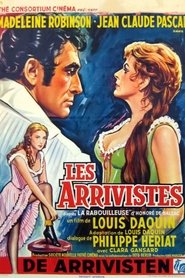 The machinations of an exofficer and...
The machinations of an exofficer and...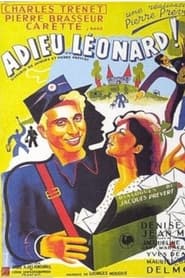 A bungling thief is threatened by...
A bungling thief is threatened by... A student from an elementary school...
A student from an elementary school...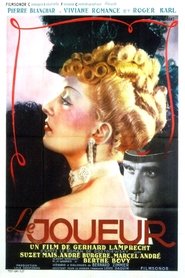 Drama in a small German water...
Drama in a small German water...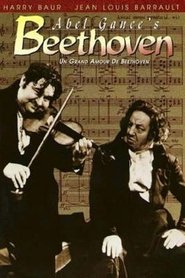 Lyrical biography of the classical composer...
Lyrical biography of the classical composer...